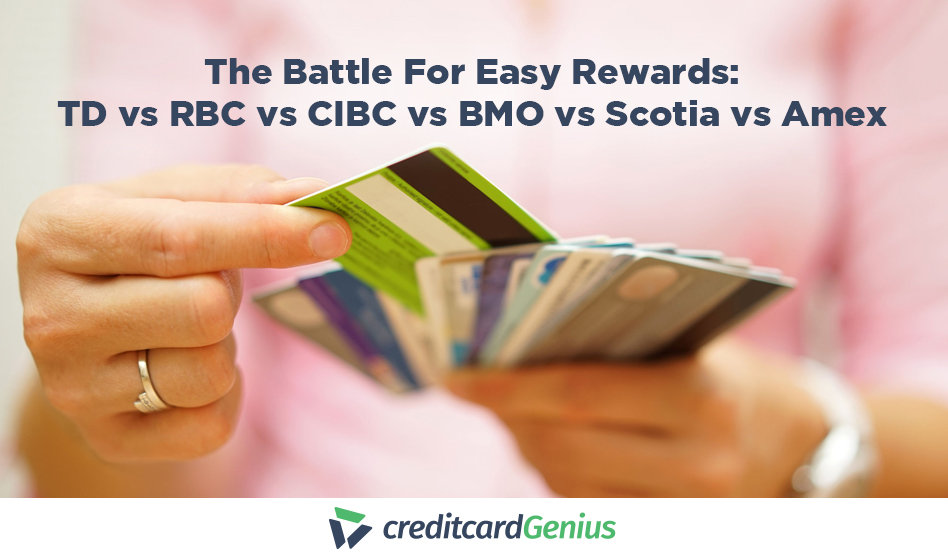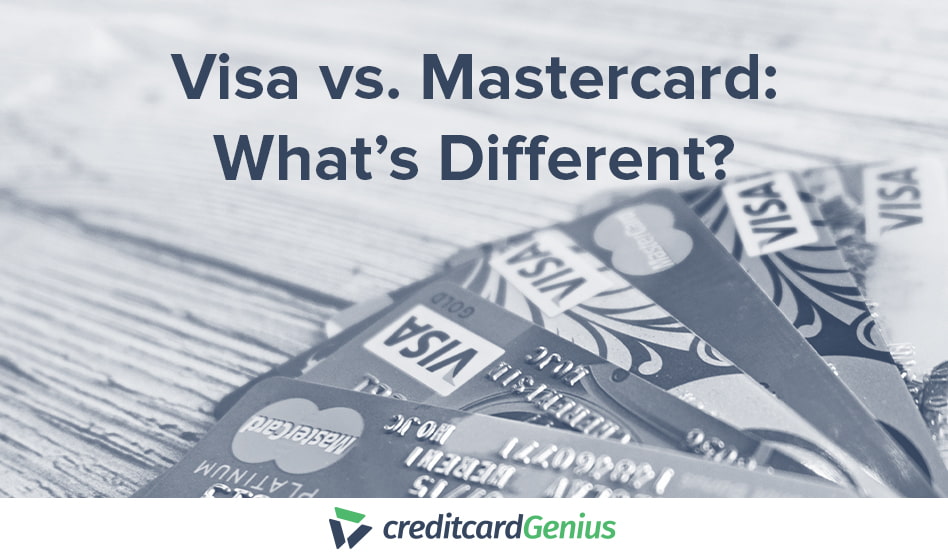Best Secured Credit Cards in Canada for 2026
Credit cards without the credit checks to help you rebuild your credit score.
The Neo Secured World Elite Mastercard is the best secured credit card for Canadians, followed by the Neo Secured World Mastercard and Capital One Guaranteed Secured Mastercard. Using 126 data points across 7 categories, Genius Rating ranks every credit card in Canada out of 5, and these are the highest-scoring secured cards in the country.
If you’re looking for an alternative with a lower purchase interest rate, check out the Home Trust Secured Visa (Low Rate).
| Card | Annual Fee | Pros | Cons | |
|---|---|---|---|---|
| #1 | Neo Secured World Elite Mastercard | $125 | * Earn an average of 2.55% cash back * Increase your cash back by keeping a balance of $5,000 in a Neo Everyday Account * Redeem your cash back whenever you want * Includes 12 types of insurance | * Caps on bonus categories * High income requirements of $80,000 personal or $150,000 household * No welcome bonus * Extra cards not available |
| #2 | Neo Secured World Mastercard | $95.88 | * Earn an average of 1.35% cash back * Increase your cash back by keeping a balance of $5,000 in a Neo Everyday Account * Redeem your cash back whenever you want | * Caps on bonus categories * Medium income requirements of $50,000 personal or $80,000 * No welcome bonus |
| #3 | Capital One Guaranteed Secured Mastercard | $0 | *Guaranteed approval *No annual fee | * No rewards |
| #1 low-interest | Home Trust Secured Visa (Low Rate) | $59 | * $0 annual fee * $59 optional annual fee for lower interest rates * No income requirements * 2% foreign exchange fee * High acceptance for Visa credit cards | * $500 minimum security deposit * No insurance included * No rewards |
Canada’s selection of secured credit cards has changed significantly over the years, now featuring rewards, low-fee, and premium cards. After all, just because you need to build credit doesn't mean you don't deserve a few perks too.
If you're in the market for a secured card, the reviews below cover everything you need to know to make an informed decision.
Key Takeaways
- The best secured credit card in Canada is the Neo Secured World Elite Mastercard.
- Secured credit cards are credit-building tools with little to no annual fees and guaranteed acceptance.
- Secured credit cards require a security deposit, anywhere from a $50 to $500 minimum.
The best secured credit cards in Canada
Our Gold award winner for best secured credit card is Neo Secured World Elite Mastercard for its average 5% cash back and 12 insurance types, making it one of the best travel options for Canadians with bad or no credit.
Our Silver award goes to another Neo Financial option, the Neo Secured World Mastercard. This card comes with equally impressive rewards, a slightly reduced annual fee, and reduced income requirements.
And our Bronze award goes to the Capital One Guaranteed Secured Mastercard. This card has no annual fee and guaranteed approval.
It’s worth mentioning the Home Trust Secured Visa (Low Rate) as a great alternative to these top 3 cards if you’re specifically looking for a lower interest rate. For an annual fee of $59, this card offers a lower interest rate of 14.9%. (The standard version of this card, the Home Trust Secured Visa Card, has no annual fee but charges 19.99% in interest.)
Since secured credit cards require security fund deposits, here are the minimum deposits needed for each card:

Note that the Capital One Guaranteed Secured Mastercard is missing from this chart. That’s because the security fund amount required varies based on your application. You’ll find out the amount once you’re approved.
Canada’s best secured credit card: Neo Secured World Elite Mastercard

If you don’t mind paying an annual fee to get some perks, take a look at the Neo Secured World Elite Mastercard. This card has the largest annual fee of all the top cards, but its benefits manage to offset the cost. With a monthly spend of $3,000, you can earn an estimated $918 in annual rewards.
The card has substantial income requirements, but if you qualify, you can earn up to 5% cash back with Neo partners and an additional 2% back if you have a $5,000 balance in a Neo Everyday Account.
Cash back isn’t the only thing the Neo secured card has going for it, either. The card’s generous insurance package includes 12 types of insurance coverage.
Silver award secured credit card: Neo Secured World Mastercard
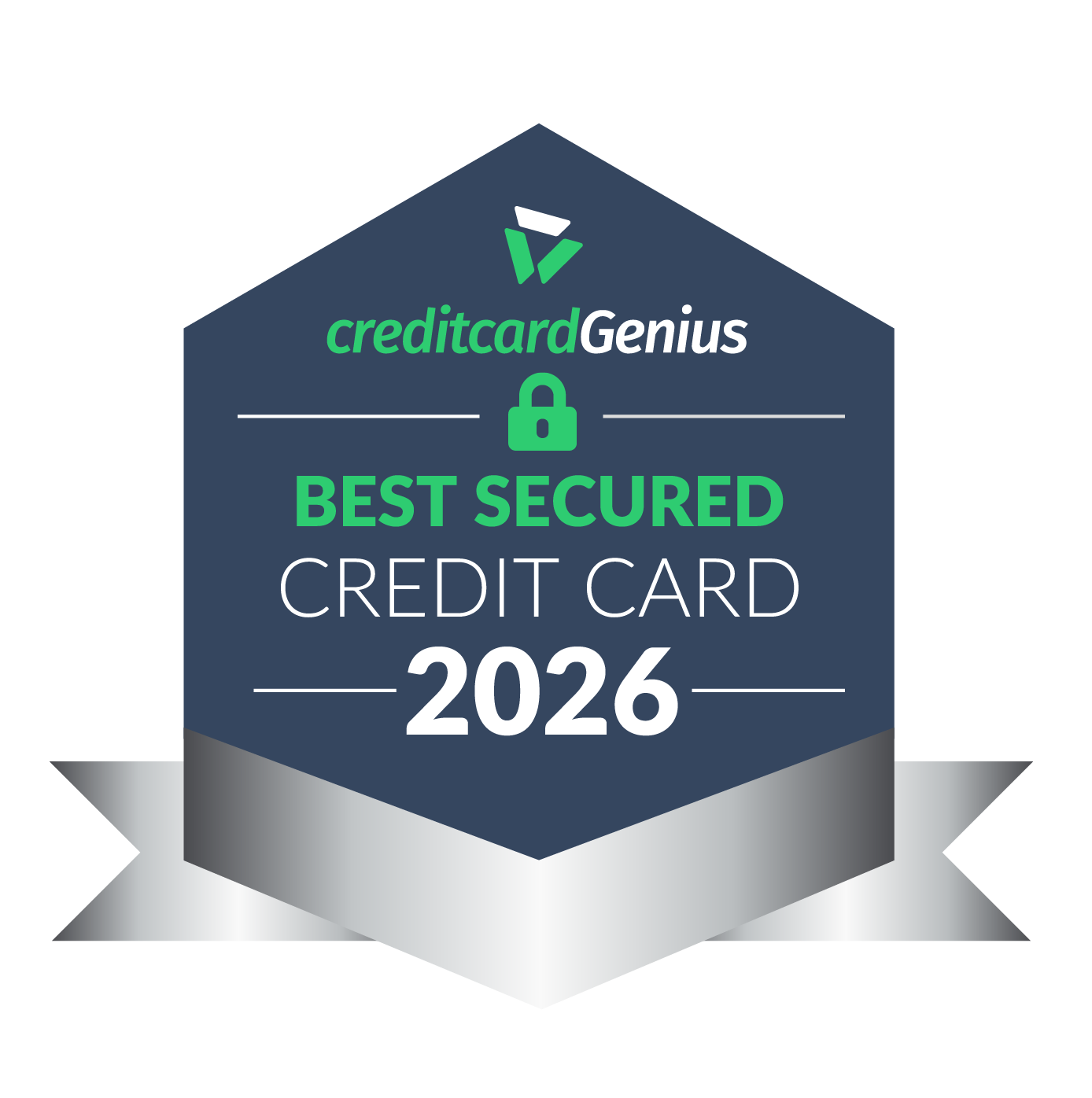
If you’re looking for a lower annual fee, but still want enhanced cash back rewards, the Neo Secured World Mastercard is another great option to consider. The card earns the same up to 5% cash back with Neo partners, plus 2% back on groceries (up to $1,000 per month), gas (up to $500 per month), and recurring bills (up to $1,000 per month), and 0.5% back on everything else.
The Neo Secured World Mastercard also has lower income requirements than the World Elite version, with applicants needing only a personal income of $50,000 or a household income of $80,000 to qualify.
The Neo Secured Mastercard doesn’t rank as one of the top 3 secured cards, but it’s not far off, and it’s another great option if you like the sound of Neo’s other cards but don’t qualify for them. This card doesn’t have any personal or household income requirements.
Bronze award secured credit card: Capital One Guaranteed Secured Mastercard
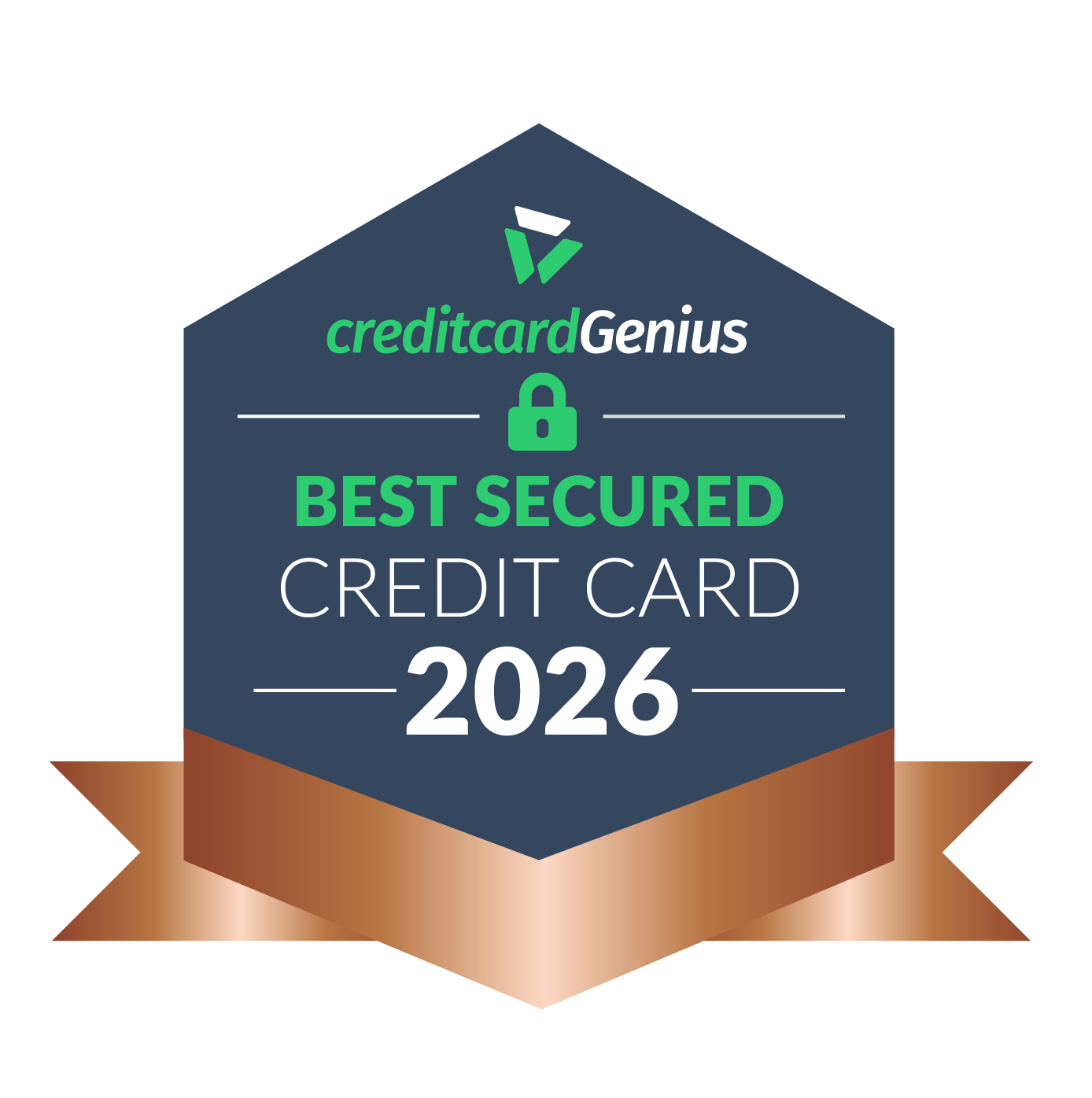
What if you don’t want to pay any annual fee at all? In that case, the Capital One Guaranteed Secured Mastercard might be a great pick, thanks to its $0 annual fee,
This card also has guaranteed approval and basic insurance.
No, you won’t earn rewards with the card, but building a positive credit history is a reward in its own right.
Best secured credit card for a lower interest rate
If you plan to carry a balance, the Home Trust Secured Visa (Low Rate) is your best bet. Why? Well, for starters, a $59 annual fee gets you a purchase interest rate at just 14.9%, which is in line with several excellent low-interest credit cards.
This card doesn’t offer rewards, but it’s more important to pay down your debt faster at a lower rate than it is to earn points or cash back.
Compare Canada’s top Mastercard credit cards by Genius Rating
To determine the best secured credit cards available in Canada, we use the creditcardGenius Genius Rating algorithm to evaluate each card’s rewards, fees, approval odds, perks, insurance, interest rates, and acceptance.
Genius Rating methodology
Since we're looking for your top options overall, we use our default weightings to determine the best secured credit cards in Canada:
- Rewards: 31%
- Fees: 20%
- Insurance: 16%
- Interest: 7%
- Perks: 16%
- Approval: 5%
- Acceptance: 5%
Learn more about our Genius Rating methodology
How to choose the right secured credit card
Choosing the right secured credit card requires examining a few factors. For starters, check the card’s annual fee and minimum security deposit, as these are costs you typically don’t consider with a traditional credit card.
Additionally, if you plan to carry a balance, choose a card with a low interest rate.
Rewards
The Capital One Guaranteed Secured Mastercard and Home Trust Secured Visa (Low Rate) don’t offer any rewards, but Neo’s secured cards do:
| Neo Secured World Elite Mastercard | Neo Secured World Mastercard | Neo Secured Mastercard | |
|---|---|---|---|
| Partner retailers | Average of 5% | Average of 5% | Average of 5% |
| Groceries | 5% (up to $1,000 per month) | 2% (up to $1,000 per month) | 1% (up to $500 per month) |
| Bills | 4% (up to $500 per month) | 2% (up to $500 per month) | 0% |
| Gas/EV Charging | 3% (up to $1,000 per month) | 2% (up to $1,000 per month) | 1% (up to $500 per month) |
| Other | 1% | 0.5% | 0% |
Tip: No matter what credit card you use, you could be earning bonus cash back on top of your card's rewards. Input your monthly spend in the GeniusCash app, and level up to earn real cash.
Fees
The highest cost you’ll need to worry about with a secured credit card is the security deposit. The deposit acts as your card’s credit limit and collateral for the account (should you fail to pay your bill).
With Neo, the minimum deposit is as low as $50, whereas with HomeTrust it is $500. Pay close attention to the deposit amount to ensure you have the required funds to open the account after applying. Note that Capital One deposit minimums vary based on your application.
Other costs to consider include the card’s annual fee, and the foreign transaction fee, should you plan to use your card abroad (or to make purchases in a currency other than Canadian dollars). Most cards charge 2.5% in FX fees, but the Home Trust Secured Visa (Low Rate) offers a slightly lower rate.
| Card | Annual fee | Foreign transaction fee |
|---|---|---|
| Neo Secured World Elite Mastercard | $125 | 2.5% |
| Neo Secured World Mastercard | $95.88 | 2.5% |
| Capital One Guaranteed Secured Mastercard | $0 | 2.5% |
| Home Trust Secured Visa (Low Rate) | $59 | 2.0% |
Approval
Secured credit cards are the easiest credit cards to get approved for because they don’t require a credit history to open. Similarly, secured cards are typically designed for lower incomes. Both the Capital One Guaranteed Secured Mastercard and the Home Trust Secured Visa (Low Rate) require no minimum income to apply.
Similarly, Neo Financial also offers a Neo Secured Mastercard, as well as 2 others, each for a different income:
| Card | Income (Personal) | Income (Household) |
|---|---|---|
| Neo Secured Mastercard | N/A | N/A |
| Neo Secured World Mastercard | $50,000 | $80,000 |
| Neo Secured World Elite Mastercard | $80,000 | $150,000 |
Perks
Secured credit cards typically offer significantly fewer perks than traditional rewards credit cards. That’s because a secured card is, at its heart, a financial tool for establishing a strong credit history.
Insurance
While secured cards often don’t come with too many extra perks, the top 3 cards all provide insurance. For example, the Neo Secured World Elite Mastercard offers insurance that rivals a good travel insurance credit card, considering its much lower annual fee.
Neo Secured World Elite Mastercard®
| Extended Warranty | 1 year |
| Purchase Protection | 90 days |
| Emergency Medical Term | 14 days |
| Emergency Medical Maximum Coverage | $1,000,000 |
| Trip Cancellation | $1,000 |
| Trip Interruption | $1,000 |
| Flight Delay | $500 |
| Baggage Delay | $1,000 |
| Lost or Stolen Baggage | $1,000 |
| Hotel Burglary | $1,000 |
| Rental Car Theft & Damage | Yes |
| Rental Car Accident | $100,000 |
| Rental Car Personal Effects | $1,000 |
Please review your insurance certificate for details, exclusions and limitations of your coverage.
In comparison, the rest of the top secured cards offer reduced insurance, though the Capital One Guaranteed Secured Mastercard is impressive, given it has no annual fee:
| Neo Secured World Mastercard | Capital One Guaranteed Secured Mastercard | Home Trust Secured Visa (Low Rate) | |
|---|---|---|---|
| Extended warranty | 1 year | 1 year | N/A |
| Purchase protection | 90 days | 90 days | N/A |
| Travel accident | N/A | $250,000 | N/A |
| Baggage delay | N/A | $300 | N/A |
| Rental car | N/A | Yes | N/A |
Interest rates
Interest rates with secured cards can vary, but typically you can expect a purchase rate of around 19.99% to 21.9% with the cards on our list— with the exception of the Home Trust Secured Visa (Low Rate), which offers a great 14.9% rate on purchases, plus 19.8% on balance transfers and cash advances.
What is a secured credit card?
Secured credit cards are spending tools designed for newcomers, debtors in recovery, and other non-traditional borrowers with poor credit.
Most secured cards have no (or low) annual fees, no income requirements, low credit requirements, and high approval rates. They work just like a regular credit card – the catch is that you have to provide a security deposit.
How secured credit cards work
If you get approved for a secured credit card, you must provide a security deposit to receive it. The size of your deposit doubles as your card’s available credit limit – deposit $50, and you can only spend up to $50. Deposit $1,000, and you’ll have up to $1,000 in spending power and so on.
A security deposit eliminates any financial risks for your credit card issuer. If you don’t pay your credit card statements on time, the company will cancel your card and keep your deposit. That’s why you can only spend as much as you pay for the card in the first place.
Can secured credit cards improve your credit?
A secured credit card's primary purpose is to build your credit score, but it’s not as simple as keeping it in your wallet. The major credit bureaus in Canada use 5 factors to measure your financial trustworthiness and calculate your credit score.
Here are the four areas in which a secured credit card can improve your credit and how to do it:
- The length of your credit history: It takes 30–90 days for your credit score to update, so keep a secured card for at least 3 months, and don’t be discouraged if your credit score doesn’t increase immediately.
- Your credit mix: Successfully managing multiple types of credit products demonstrates your financial responsibility. This is the easiest area to improve. If you apply for and receive a secured credit card, you’ve already succeeded in diversifying your wallet.
- Your credit utilization ratio: Banks prefer to lend to borrowers with lower credit utilization. Try to spend less than half of your secured credit card limit every month – ideally, less than 30% – or improve it by making a bigger deposit.
- Your payment history: Lenders like to know that you pay your bills in full and on time. Try to pay off your credit card balance before the monthly payment deadline to improve your credit score.
If you’re curious, the other factor used to measure credit score is application frequency. You can boost your score simply by resisting the urge to apply for any other credit cards or credit products for at least 3 months after receiving a secured credit card.
How long do I need to use a secured credit card?
You need to use a secured credit card until your credit score improves enough to qualify for an unsecured card. A good credit score in Canada is 660–724, but how long it takes you to reach it depends on your current credit score and spending habits.
It takes your credit score 30–90 days to update, so plan to use a secured credit card for 3 months to 1 year at best.
Secured credit card pros and cons
When deciding whether a secured card is right for you, keep in mind that while they can be a significant help in rebuilding credit, you'll still be charged interest and other fees.
Here's an overview of the pros and cons related to secured credit cards:
Pros:
- Helps build and improve credit
- Near-guaranteed approval
- No or low annual fees
- No income requirements
- Possible rewards, cash back, and welcome offers
- Helps avoid overspending
- Teaches financial discipline
- The security deposit is returned when the card is closed
- Accepted everywhere credit cards are accepted
Cons:
- Requires a security deposit
- May still charge monthly/annual fees
- The credit card limit is restricted by the security deposit
- Interest fees and late payment charges still apply
- Little to no insurance included
Secured credit card alternatives
If you don’t like the downsides of a secured credit card or you aren’t trying to build credit, consider applying for:
- No fee credit cards, which provide cash back and other rewards on cheap
- Prepaid credit cards, which offer some rewards but don’t let you spend more than what you have in your account, and don’t contribute to your credit score
- Student credit cards, which have relaxed credit and income requirements to help young cardholders build credit
Pro Tip: The creditcardGenius quiz makes it easy to find a credit card that matches your credit score, goals, income requirements, and priorities in less than a minute.
How to get a secured credit card
Applying for a secured credit card is the same as applying for any other card:
- Check the eligibility requirements: You must be a Canadian resident and at least the age of majority in your province or territory. Fortunately, income and credit requirements don’t really apply to secured credit cards.
- Gather your documents: Generally, you need a piece of government-issued ID with your name, date of birth, and address, plus your SIN card.
- Submit your application: Most banks allow Canadians to submit their applications by phone, by mail, in person, or online.
Once you’re approved, you’ll need to make a security deposit to receive your card. Some issuers require you to create an account, while others accept payment via e-transfer or debit card. One thing’s for sure: you can’t make a security deposit with another credit card.
Transitioning from a secured to an unsecured credit card
Once you’ve built your credit, you’ll probably want to upgrade to an unsecured credit card that offers more rewards and benefits. To prepare for that transition, keep the following in mind:
- Monitor your credit score. While you have your secured card, check your credit score regularly (e.g., once a month) to track your progress and determine when you might qualify for an unsecured credit card.
- Make consistent on-time payments. On-time payments play a significant role in improving your credit score. Pay your balance in full by the due date every month – either in one lump payment or multiple payments throughout the billing cycle.
- Keep your credit utilization low. Demonstrate responsible use of your credit card by using 30% or less of your available credit.
- Review your credit report. Check your credit report periodically, ideally every six months, to ensure it’s error-free and dispute any inaccuracies.
- Ask your issuer about unsecured cards. Some credit card issuers offer pathways to help you transition from a secured card to an unsecured one. Contact them to learn your options.
FAQ
Why is there a security deposit on a secured credit card?
The main reason is that a security deposit eliminates any financial risk for the company that issued you a secured credit card. If you miss your payments, they can simply close your account and keep your original deposit.
How can a secured credit card help me build credit?
A secured credit card can help users build credit by contributing to their credit history, credit mix, credit utilization score, and payment history – but it won’t work if you don’t pay your bills on time.
Do you need a credit check to get a secured credit card?
Some don’t require a hard credit check, though others might. In general, even secured cards that require credit checks are easier to get approved for since you provide a deposit, and the risk to the card issuer is low.
Is a secured credit card the same as a prepaid credit card?
Secured and prepaid cards aren’t the same. Both require upfront funds, but only secured cards build credit since they involve monthly payments. Prepaid cards draw from the funds you’ve loaded and must be recharged when depleted.
How long should you keep a secured credit card?
It can take anywhere from 3 months to 1 year to improve your credit, so hold onto it until there's improvement. If it’s your oldest card, don’t close it as soon as your credit improves, or your score could drop.
Can you increase the credit limit on a secured credit card?
You can increase the amount of available credit on your secured credit card by adding to your security deposit account. Simply deposit money into your account for a higher credit limit – but remember to keep paying off your balance.
Editorial Disclaimer: The content here reflects the author's opinion alone. No bank, credit card issuer, rewards program, or other entity has reviewed, approved, or endorsed this content. For complete and updated product information please visit the product issuer's website. Our credit card scores and rankings are based on our Rating Methodology that takes into account 126+ features for each of 228 Canadian credit cards.



 ×1 Award winner
×1 Award winner 



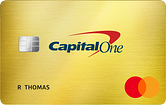


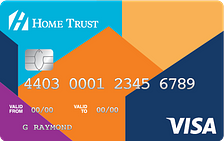
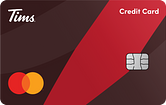

 $50 GeniusCash + Guaranteed approval* + Earn cashback on gas & groceries.*
$50 GeniusCash + Guaranteed approval* + Earn cashback on gas & groceries.*






















